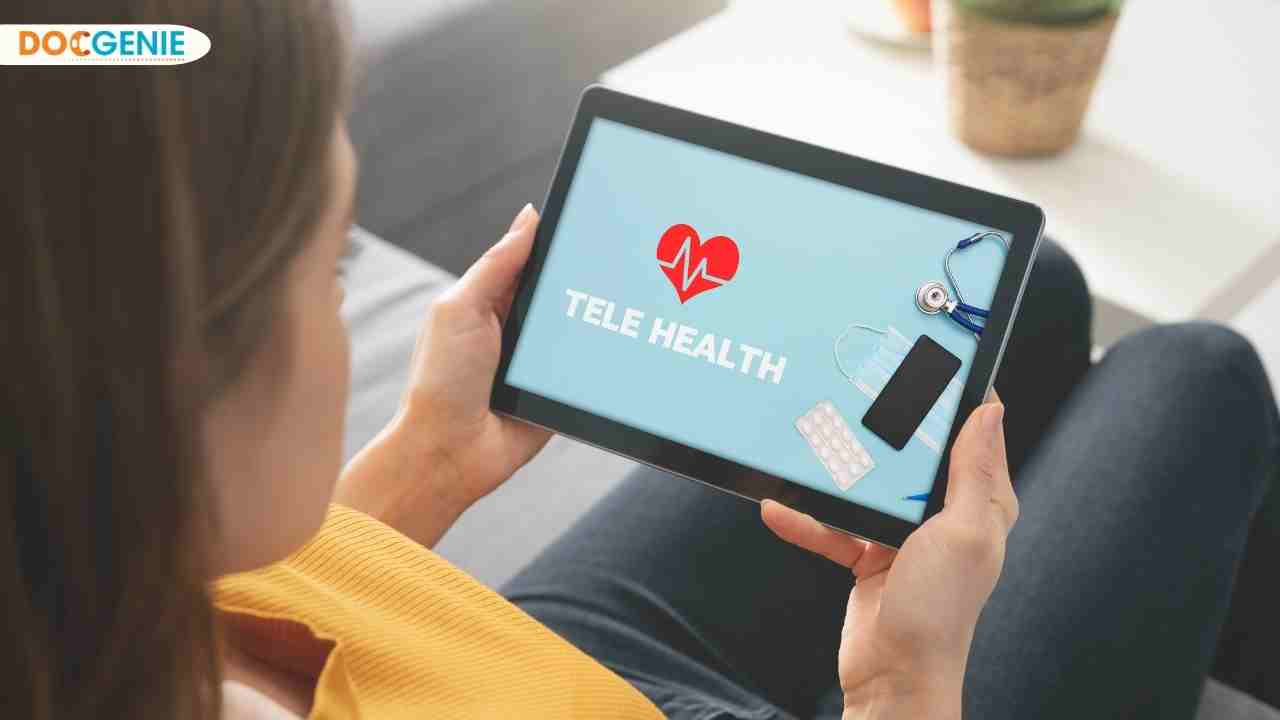Limits of Telemedicine: When to Visit a Doctor
3 min read
By DocGenie , Published on - 01 February 2021With rapid healthcare advances, it is much easier to say what conditions telemedicine can treat. But there are still a few circumstances where it is advisable to see your doctor in person.
What Kinds Of Treatments Are Better Not Done Over Telemedicine?
Telemedicine is increasingly becoming the primary solution for many doctors and patients. These platforms offer patients the option to get care from certified doctors or other healthcare providers without having to physically go to the hospital. Patients can book online consultations with their doctors easily. Telemedicine can help treat many common health conditions and, with the help of smartphone apps and healthcare devices, can help track a patient's progress and recovery. However, there are some conditions for which one should seek in-person care or go to the hospital.
First of all, we will discuss the health conditions that can be treated with telemedicine. Later on, we will discuss when to seek emergency care.
Acute Or New Problems In A Generally Healthy Person
These could be fever, headache, loose stool, aches and pains, even cough, allergy, rashes. Chronic problems that require monitoring in-between doctor visits like anxiety, depression, some respiratory illnesses, sugar/diabetes, BP, UTI, issues around menstrual cycle and dermatology or skin issues. Telemedicine is very convenient and easy in seasons when you need to discuss issues with the doctor in between visits - like confusion around medicines, or a lab report. Patients can arrange their video conference or call at their home rather than visiting a doctor’s office. They can discuss their health issues and upload labs, home sugar or BP readings or any other information their doctor is asking for. In turn, doctors write prescriptions and provide medical advice if the diagnosis is possible.
When needed, doctors may also refer patients for lab tests, or ask them to follow up in 2-5 days to check for improvement. This provides comfort for both the doctor and the patient.
Treatments That Should Not Be Done Over Telemedicine/ Video Call
Patients should not use telemedicine for serious health situations and emergencies. Patients who are displaying potentially dangerous signs and symptoms must immediately rush to a nearby hospital. Some symptoms and conditions where this applies include –
- Problem in breathing
- Severe allergic reaction “Anaphylaxis” or fast developing rash with sensation of choking/difficulty breathing
- Signs of stroke, including facial drooping or one-sided weakness or slurring of speech
- Symptoms of heart attacks, such as shortness of breath and crushing chest pain
- Unexplained bleeding
- Traumatic injuries because of accident or fall
- Head injury
Also read: The Best General Physicians in Delhi
Bottom Line
Telemedicine has it’s place in the whole spectrum of care, along with doctor clinics, hospitals and emergency rooms, as long as both patients and doctors remain alert to it’s benefits as well as limitations.
DocGenie is an online telemedicine platform that provides you with quality healthcare from the comfort of your own space. On DocGenie, you will find a select few, highly-qualified doctors, unlike other online platforms with thousands of doctors. So you can be assured of receiving excellent, honest, personalized care from the best doctors.
Our Doctors
Online General Physician in India, Online ENT Doctors in India, Online Psychiatrist Consultation in India, Online pediatrician consultant in India, Online Obstetrician & Gynaecologist Consultant in India, Online Dermatologist Doctor in India, Online Dentist Consultation in India, Online Consultant with Surgeons in India, Online Orthopedic Consultation in India, Online Urologist Doctor Consultation in India
Author Details

Dr.Rachna Kucheria
MD (Community Medicine) AIIMS New Delhi
MD (Family Medicine) USC California
Obesity Medicine Certification The American Board of Obesity Medicine
30+ Years of experience


